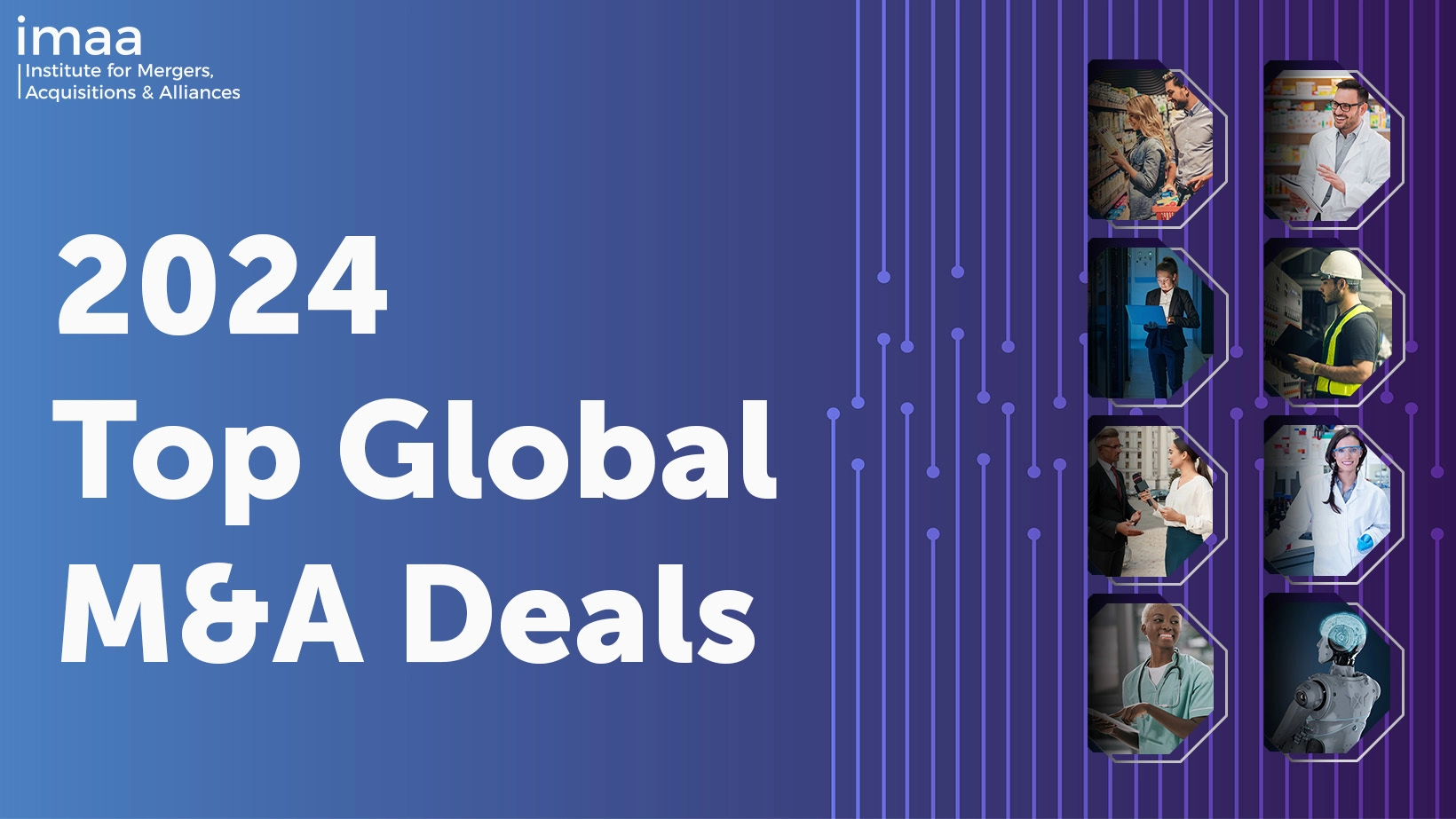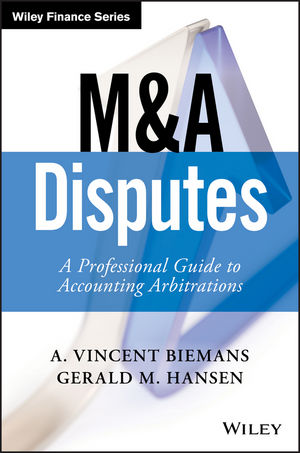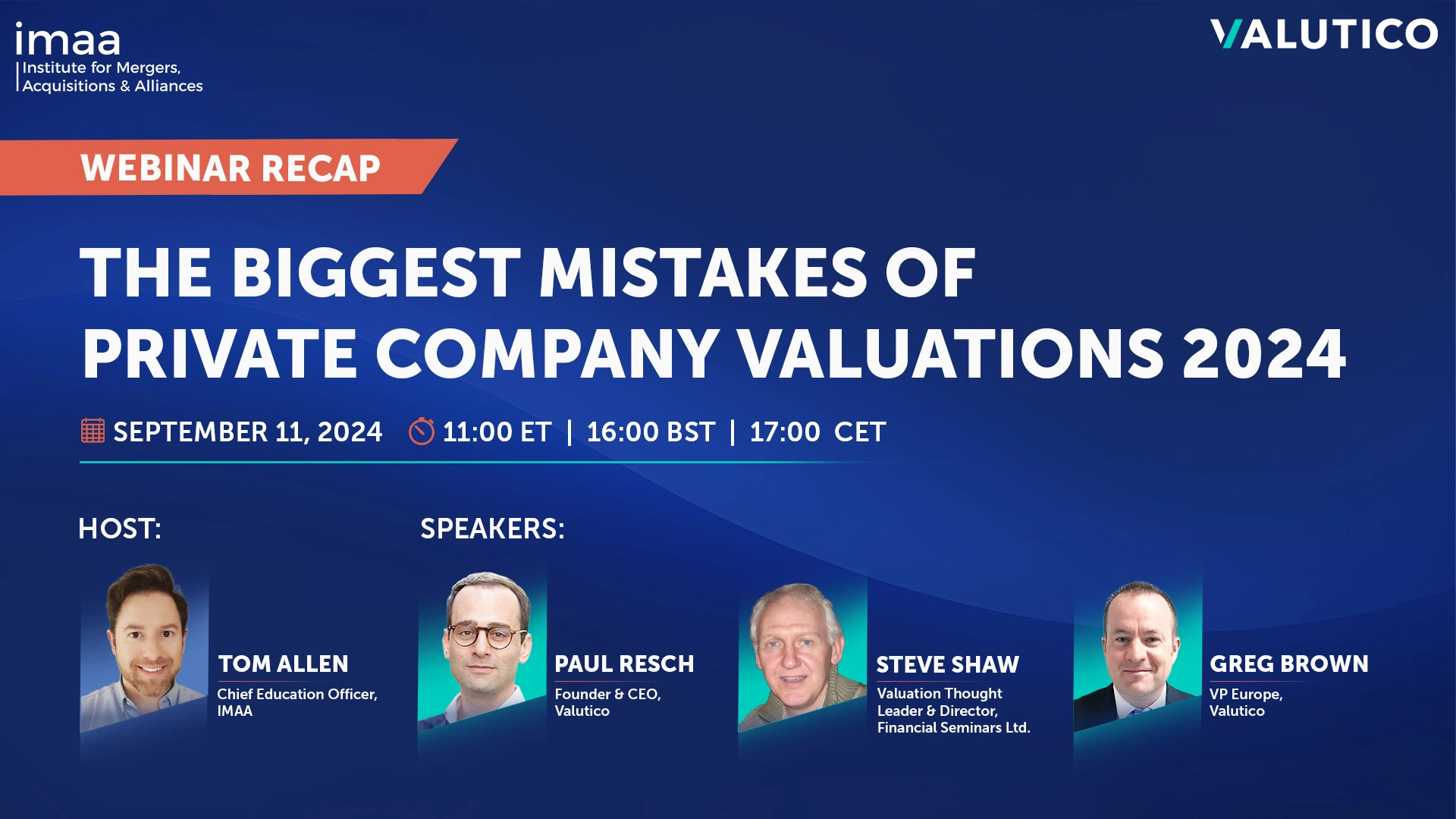
books-complementary M&A Disputes: A Professional Guide to Accounting Arbitrations
- books-complementary, elibrary
M&A Disputes: A Professional Guide to Accounting Arbitrations
- Christopher Kummer
SHARE:

Available in our e-library on M&A at IMAA!
Authors: A. Vincent Biemans and Gerald M. Hansen
Publisher: John Wiley
Year: 2017
ISBN: 978-1119331919
Content
Merger and acquisition (M&A) transactions commonly incorporate contractual post-closing purchase price adjustment mechanisms. In many instances the post-closing purchase price adjustment process is completed smoothly and collaboratively. In other cases, the post-closing purchase price finalization can lead to disputes between the buyer and the seller that can involve substantial amounts and potentially make or break the deal. Those disputes are often brought before independent accountants for resolution.
M&A Disputes allows you to confidently navigate the post-closing purchase price adjustment landscape with firsthand insights from two highly experienced M&A dispute professionals. The combined expertise of the authorial team quickly brings you up to speed on the post-closing adjustment mechanisms and the dispute resolution process with an easy-to-understand framework before engaging in an in-depth discussion of the various facets of M&A disputes.
M&A Disputes provides a comprehensive walkthrough of the entire M&A dispute resolution process, from selecting an accounting arbitrator through final award. It also provides helpful tips to pre-emptively mitigate and possibly avoid costly breakdowns during the post-closing purchase price adjustment process. Whether you are working in-house or at a professional services firm, its in-depth coverage serves as a road map for achieving optimal results.
This go-to reference will remain close at hand because it:
- Brings clarity to core concepts and issues underpinning purchase price adjustment mechanisms and disputes, including the nature of GAAP, the consistent application of historical accounting practices, target net working capital, transaction-specific adjustments, and more
- Goes in-depth to demystify what drives disputes in general and provides detailed discussions on common categories of disputes, including inventory, accounts receivable, contingent liabilities, and revenue recognition
- Provides practical guidelines for preparing and presenting submissions to the accounting arbitrator, along with an insider’s look at the resolution of such disputes from the arbitrator’s perspective
M&A Disputes provides the advice, tools, and in-depth coverage that will prove invaluable to the transaction parties, legal counsel, accounting advisors, and would-be or experienced accounting arbitrators
Table of Contents
Preface
Acknowledgments
About the Authors
Part 1: The M&A Dispute Framework
Chapter 1: Introduction to M&A Disputes
Chapter 2: The Post-Closing Adjustment and Dispute Process
Chapter 3: Post-Closing Net Working Capital Adjustments
Part 2: The Core
Chapter 4: The Nature of GAAP
Chapter 5: Past Practices in Accordance with GAAP
Chapter 6: Target Net Working Capital
Chapter 7: Transaction Specific Adjustments
Chapter 8: Audited Financial Statements and Auditing Concepts
Chapter 9: Subsequent Events, New Positions, and New Information
Part 3: The Accounting Arbitration
Chapter 10: Mitigation of Post-Closing Purchase Price Disputes
Chapter 11: Selection and Retention of an Accounting Arbitrator
Chapter 12: The Parties’ Initial Submissions
Chapter 13: Further Submissions, Proceedings, and Considerations
Chapter 14: The Arbitration Award
Part 4: The Disputed Items
Chapter 15: Overview of Disputed Items
Chapter 16: Inventory
Chapter 17: Accounts Receivable
Chapter 18: Contingent Liabilities
Chapter 19: Revenue Recognition and Expense Accruals
Part 5: Other Topics
Chapter 20: Governing Agreements and Contractual Choices
Chapter 21: Interaction with Indemnification Provisions
Chapter 22: Other Mechanisms, Earn-Outs, and Locked Boxes
Chapter 23: International Considerations
Index
TAGS:


Stay up to date with M&A news!
Subscribe to our newsletter


